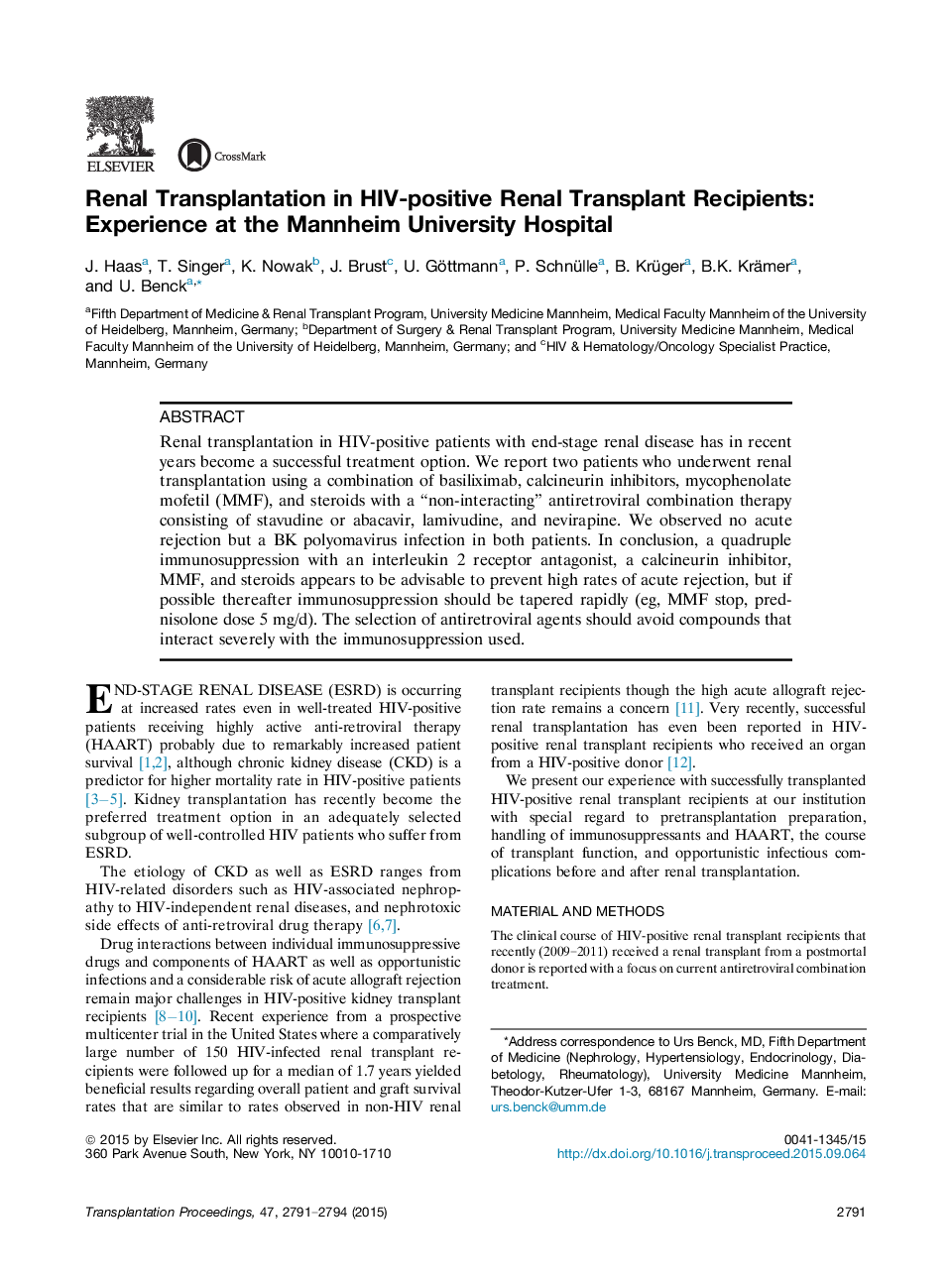| Article ID | Journal | Published Year | Pages | File Type |
|---|---|---|---|---|
| 4255936 | Transplantation Proceedings | 2015 | 4 Pages |
•Renal transplantation in HIV-positive patients is a successful treatment option.•Initial quadruple immunosuppression prevent high rates of acute rejection.•Longer-term immunosuppression should be tapered rapidly to avoid infections.•Select antiretroviral agents avoid marked interaction with immunosuppression.•BK virus infection may be a more frequent finding in this setting.
Renal transplantation in HIV-positive patients with end-stage renal disease has in recent years become a successful treatment option. We report two patients who underwent renal transplantation using a combination of basiliximab, calcineurin inhibitors, mycophenolate mofetil (MMF), and steroids with a “non-interacting” antiretroviral combination therapy consisting of stavudine or abacavir, lamivudine, and nevirapine. We observed no acute rejection but a BK polyomavirus infection in both patients. In conclusion, a quadruple immunosuppression with an interleukin 2 receptor antagonist, a calcineurin inhibitor, MMF, and steroids appears to be advisable to prevent high rates of acute rejection, but if possible thereafter immunosuppression should be tapered rapidly (eg, MMF stop, prednisolone dose 5 mg/d). The selection of antiretroviral agents should avoid compounds that interact severely with the immunosuppression used.
